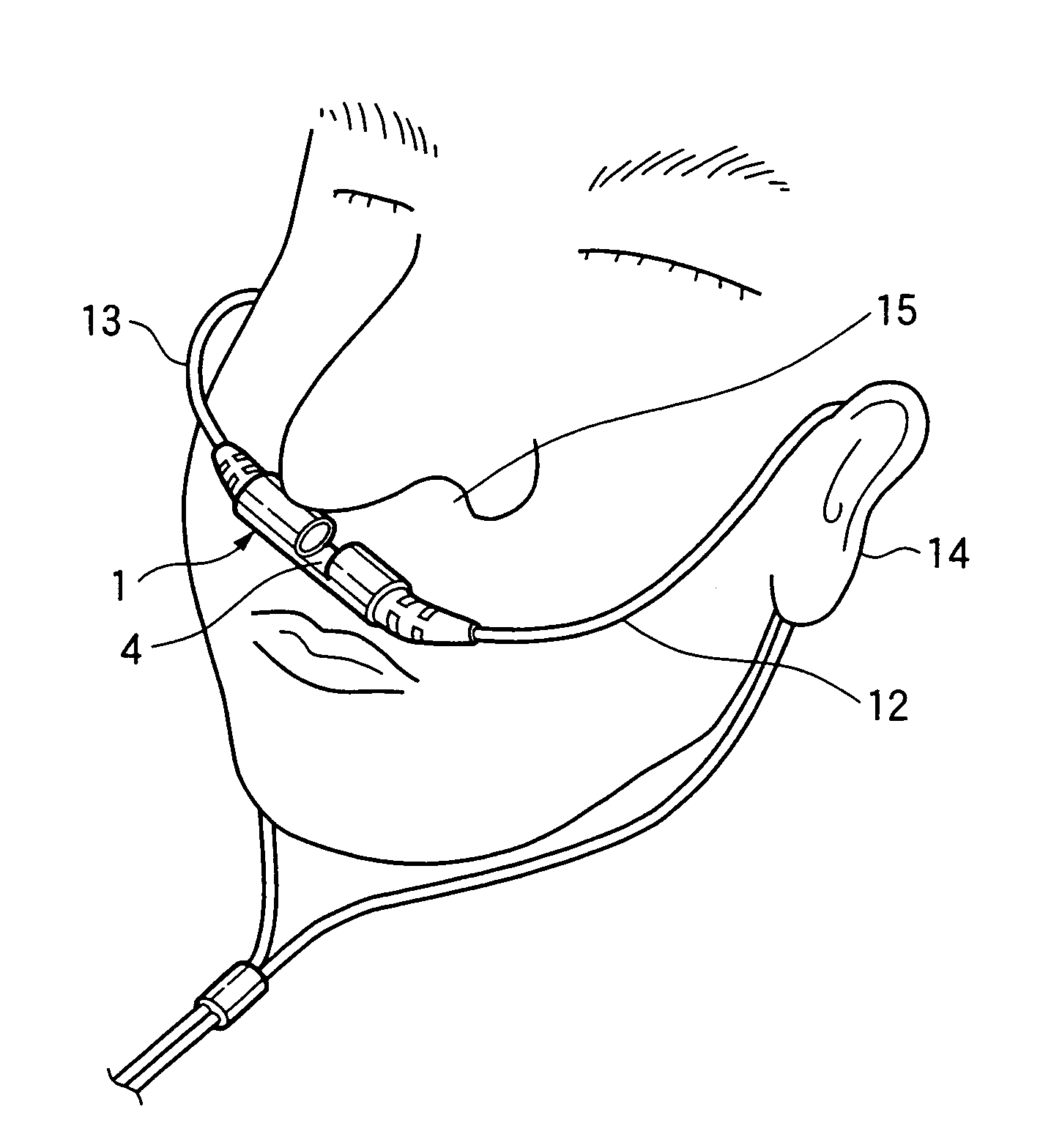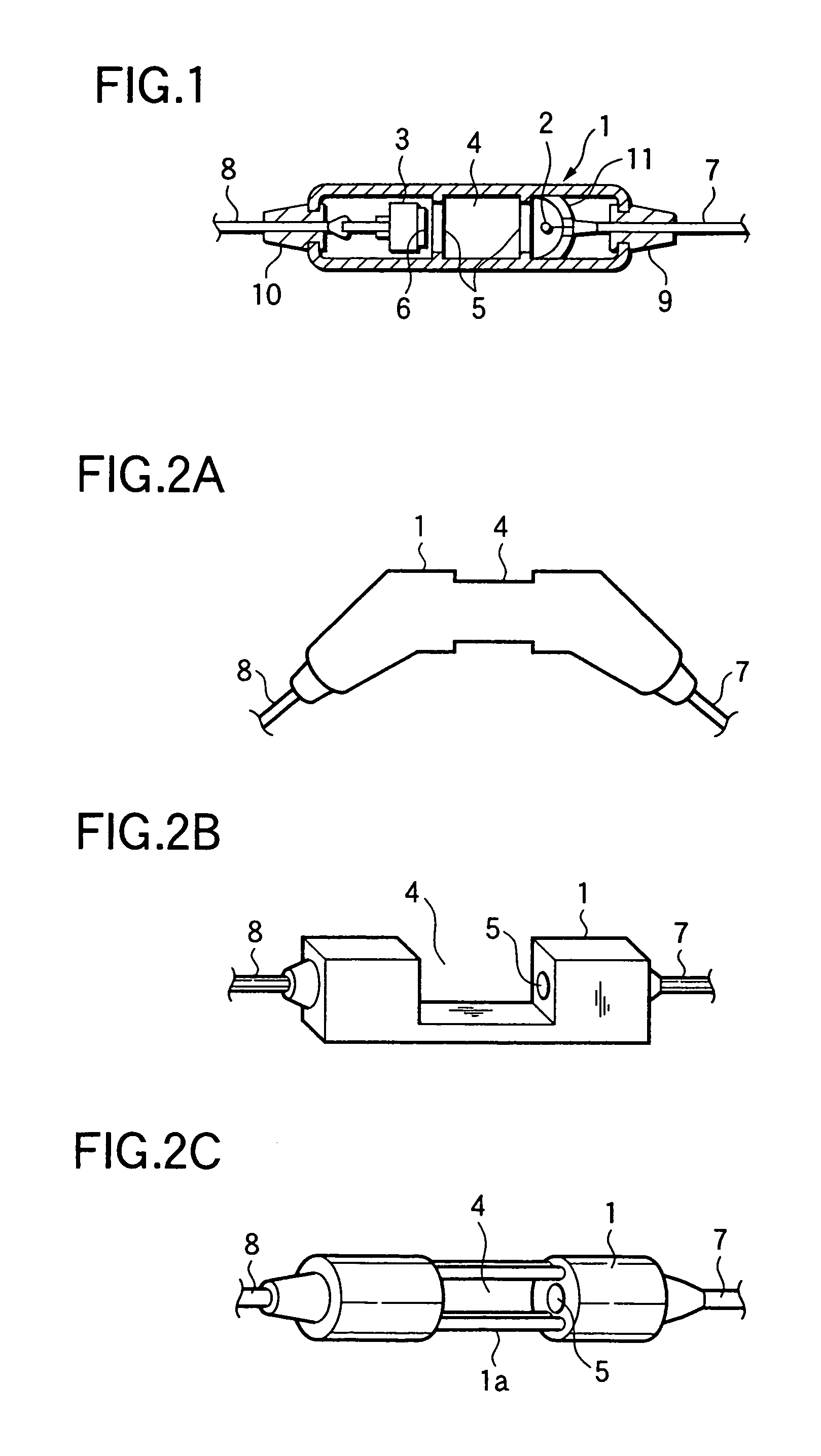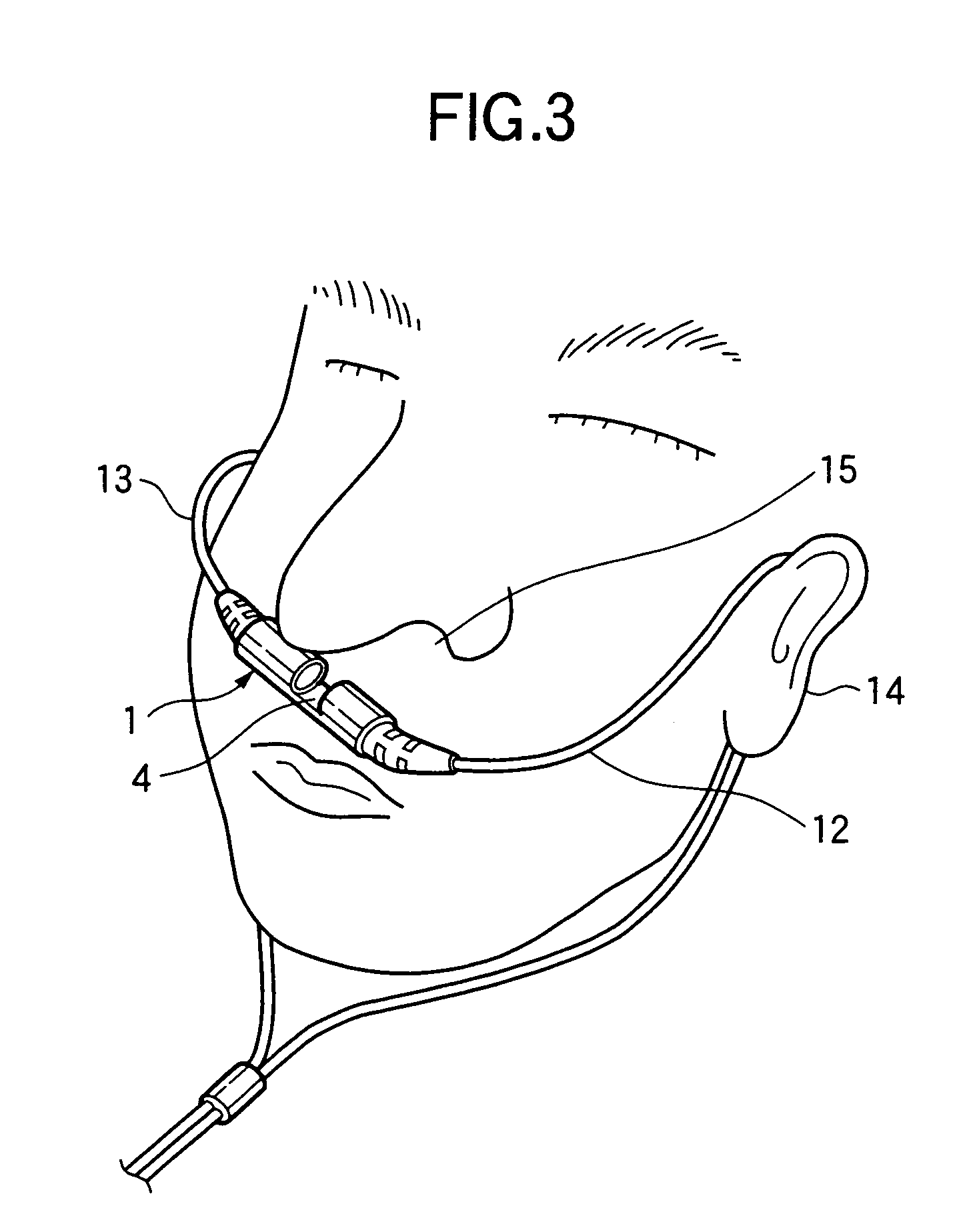Sensor for measuring carbon dioxide in respiratory gas
a carbon dioxide and sensor technology, applied in the direction of respiratory organ evaluation, valve details, material analysis, etc., can solve the problems of increasing operating costs, difficult connection of the apparatus to the patient, and bulky apparatus, etc., to improve measurement accuracy and responsibility, compact sensor, and less expensive
- Summary
- Abstract
- Description
- Claims
- Application Information
AI Technical Summary
Benefits of technology
Problems solved by technology
Method used
Image
Examples
Embodiment Construction
[0072]Embodiments of a sensor for measuring the concentration of a carbon dioxide gas in respiratory gas according to the invention will be described herein below by reference to the accompanying drawings.
[0073]FIGS. 1 is a transverse cross-sectional view showing an example configuration of a sensor according to a first invention. As shown in FIG. 1, a sensor main unit 1 which is formed from resin or metal into a substantially cylindrical shape and serves as a support member is axially separated into three chambers. A light-emitting element 2 is disposed in a chamber located at one end of the three chambers, and a light-receiving element 3 is disposed in another chamber located at the other end of the three chambers. An respiratory flow path 4 is formed so as to vertically penetrate a middle chamber of the three chambers. The respiratory flow path 4 is hermetically separated from the adjacent two chambers by partitions. An opening section is formed in each of the partitions. A trans...
PUM
| Property | Measurement | Unit |
|---|---|---|
| power consumption | aaaaa | aaaaa |
| length | aaaaa | aaaaa |
| power consumption | aaaaa | aaaaa |
Abstract
Description
Claims
Application Information
 Login to View More
Login to View More - R&D
- Intellectual Property
- Life Sciences
- Materials
- Tech Scout
- Unparalleled Data Quality
- Higher Quality Content
- 60% Fewer Hallucinations
Browse by: Latest US Patents, China's latest patents, Technical Efficacy Thesaurus, Application Domain, Technology Topic, Popular Technical Reports.
© 2025 PatSnap. All rights reserved.Legal|Privacy policy|Modern Slavery Act Transparency Statement|Sitemap|About US| Contact US: help@patsnap.com



